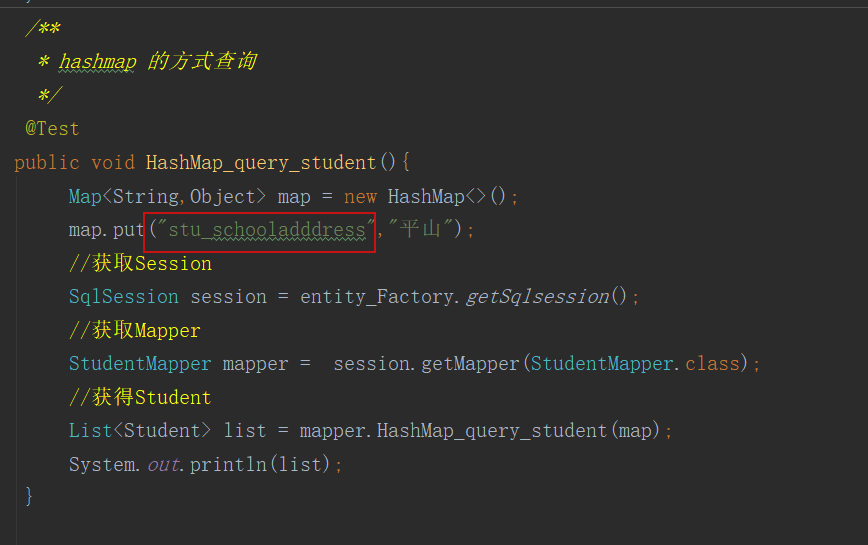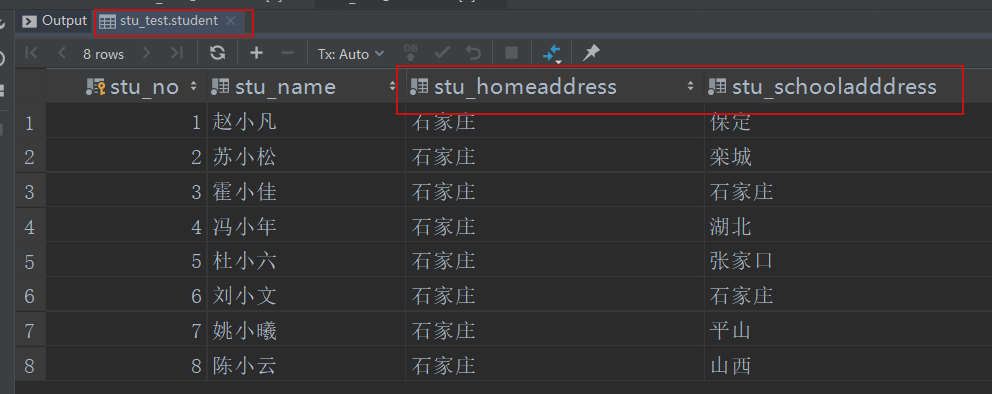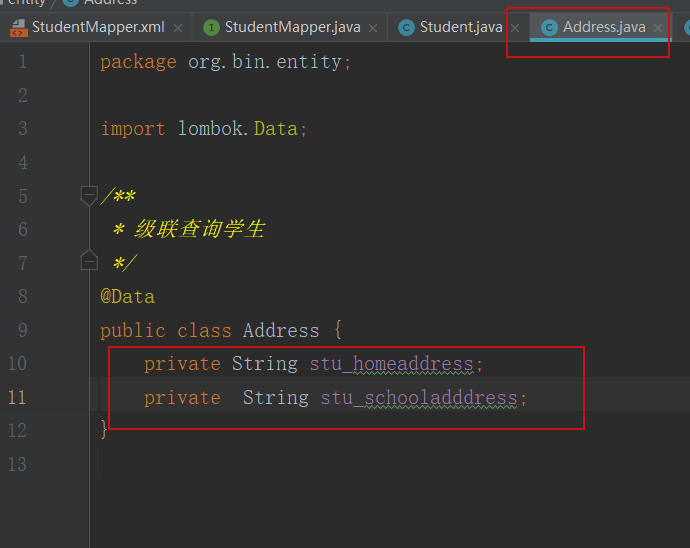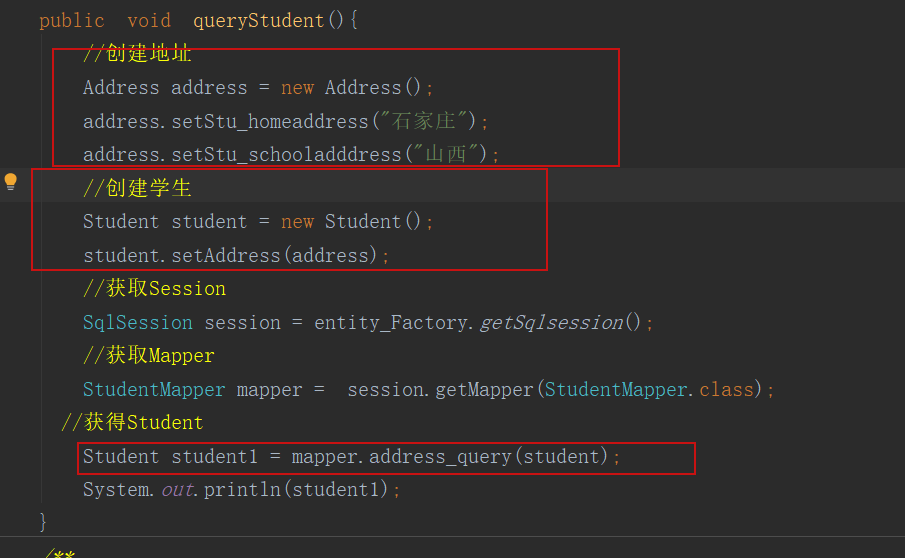mybatis 的输入参数:
指得就是parameterType的参数 这个参数就代表的sql语句中的输入参数

sql语句中的参数使用 有两种方式 :
使用#{} 获取: 8个基本数据类型 + String 类型 都可以随意起名 比如 #{aaa} 当然不推荐 最好写的规范一些
select * from where stuno = #{id} 这个id只是随意起的名字
引用数据类型 就要写 实体类中的名字 比如 我实体类中有一个属性 private Sting stuno; 那么应该写 #{stuno} 不能瞎写
select * from where stuno= #{stuno}
使用${} 获取 8个基本数据类型 + String 类型 必须写${value} 必须是这个 不能更改 (普通的查询不推荐使用$()形式)
select * from where stuno = ${value} 必须这样写
引用数据类型跟#{} 的使用一样 必须写实体类中规定的属性
select * from where stuno= ${stuno}
模糊查询,方式一: 测试类
select stuno,stuname,stuage from student where stuage= #{stuAge} or stuname like #{stuName}
Student student = new Student();
student.setStuAge(24);
student.setStuName("%w%");
List<Student> students = studentMapper.queryStudentBystuageOrstuName(student) ;//接口的方法->SQL
模糊查询,方式二: xml中
select stuno,stuname,stuage from student where stuage= #{stuAge} or stuname like '%${stuName}%'
#{}自动给String类型加上'' (自动类型转换)
${} 原样输出,但是适合于 动态排序(动态字段)
简单介绍下parameterType中"复杂"的输入参数:
i: hasMap 类型 :parameterType的属性值填写HashMap sql语句中可以的名字没有要求


测试的时候 key的值需要跟sql语句中的对应
ii:嵌套对象的查询;
我的数据中Studen表有两个地址,分别是学校地址跟家庭地址 我的实体类Student类 只有一个 private Address address; 我的Address类中有 两个属性 学校地址跟家庭地址
看图:
Student类

Student表:

Address类:

StudentMapper.xml 我的输入参数为对象类型 我就可以使用对象属性.另一个属性
address.stu_shcooladdress
(Student内的属性). (Address中的属性)

测试类:
